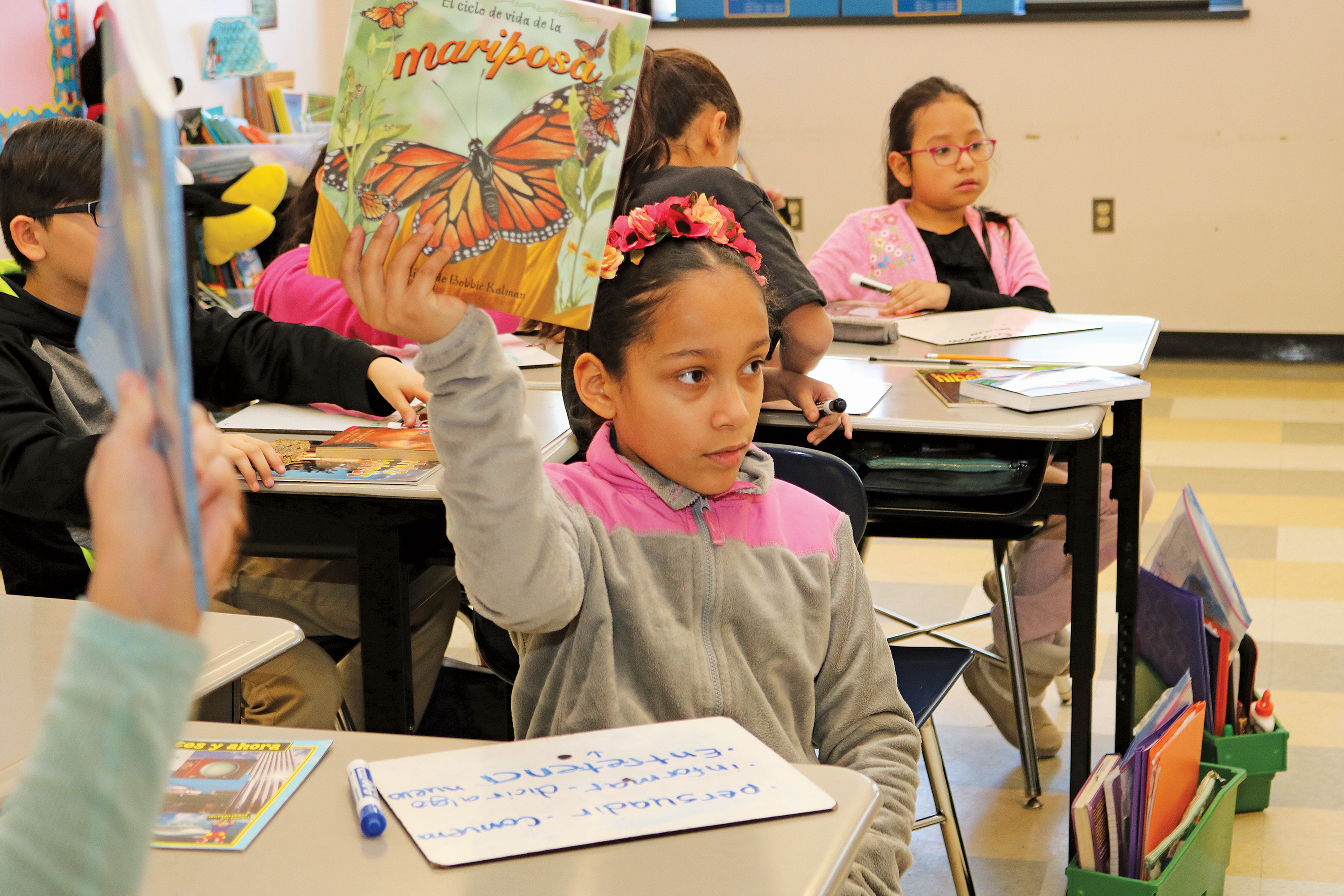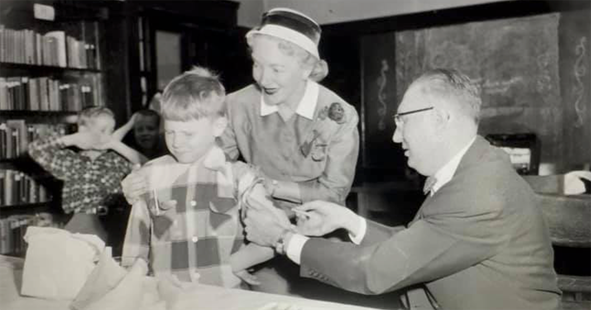A look back at MTA’s history
Stories from the past to present
Alternative ‘facts’ drove anti-communist era loyalty oath mandates
Attempts to control what is taught in schools and colleges are raging right now, but they aren’t unprecedented. In 1935, at the height of the Red Scare, the state Legislature enacted a law requiring all educators at public and private schools and colleges to sign a “loyalty oath.”The MTA opposed this law. Although few disagreed with the oath’s specific mandate to uphold the Constitution, many were concerned about the distrust and misinformation it fostered. For example, one Hearst paper falsely claimed that 200,000 Soviet textbooks had been imported into the U.S. for student indoctrination. “Alternative facts” have been around for a long time.
The state Supreme Judicial Court finally ruled that the requirement was unconstitutional in 1967.
Published in MTA Union News, May 23, 2025
MTA backed nation’s first bilingual ed law in 1971
MTA members’ support of Milford student Marcelo Gomes Da Silva is a continuation of the union’s longstanding defense of immigrant students. In 1971, the MTA’s top legislative priority was a transitional bilingual education bill. “Our first concern is that these are living, aspiring, needful children in the midst of our highly technical and widely proclaimed American Society,” an ally wrote in MTA’s publication.

When the bill was signed by Republican Gov. Francis Sargent a few months later, it became the first mandatory bilingual education law in the country. The MTA opposed repeal of that law when an English-only mandate was approved under the so-called Unz initiative petition in 2002. That law was in turn undone when the LOOK Act was approved in 2017, with the MTA’s support. That act gives districts the option of providing bilingual education services once again.
Concern for “living, aspiring, needful children” is in short supply in some quarters these days, but not among MTA members, who have been standing up for their immigrant students and families in districts across the state.
Published in MTA Union News, June 11, 2025
From smallpox to conspiracy theories
Rubella. Tetanus. Diphtheria. Graveyards from prior centuries are filled with children who died of these and other infectious diseases that are now preventable thanks to vaccines. Schools played an important role. In 1827, Boston became the first city in the country to require children entering school to be vaccinated against smallpox. In 1980, smallpox was declared eradicated from the world thanks to the vaccine.

In the 1950s, parents were terrified of polio. The Salk vaccine was eagerly awaited. In 1954 eight counties in Massachusetts were among 217 sites across the country where the polio vaccine was tested for efficacy compared to a placebo before it received final approval in 1955. A 1954 article published in The Massachusetts Teacher concluded, “The vaccinations became a matter of school routine and, together, youngsters went through them like little troopers.” Today, polio has been eradicated in all but two countries.
Despite these and many other successes, vaccines are increasingly controversial, in some cases based on misinformation while in others based on religious or personal beliefs. Vaccines are no longer administered through schools, but MTA members still play an important role in teaching students how to distinguish anecdotes and misinformation from scientific evidence, wherever that leads.
Published in MTA Union News, June 18, 2025